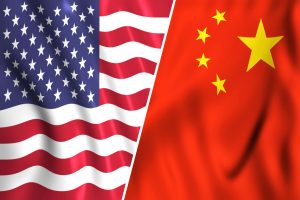Promod Boro, once a prominent student leader, now serves as the chief executive member of the Bodo Territorial Council (BTC). From playing a key role in the signing of the historic Bodo Peace Accord to envisioning Bodoland as a hub of peace and development, Boro has been at the forefront of a transformative journey for the region. In an exclusive interview with Abhijit Deb of The Statesman, the leader outlines his vision and plans for the future of the Bodo Territorial Region.
Q: You have been at the helm of affairs of the Bodoland Territorial Council (BTC) for the last four years. What are the major challenges you faced?
Advertisement
A: When I took charge, Bodoland was known for all the wrong reasons – violence, unrest, and underdevelopment. However, over the last four years, there has been a significant change in perception. The signing of the Bodo Peace Accord during my tenure paved the way for development and peace. My commitment has been to ensure that the Bodoland Territorial Region (BTR) moves forward, leaving behind its troubled past. The change is now visible in the region.
Q: You have come out with a vision document for 26 tribal groups staying in the BTR. What was the motive behind it?
A: The vision document is a comprehensive roadmap that was developed in consultation with people from every tribal group, irrespective of their size. The aim was to document the unique challenges faced by each group and address them in a structured manner. Some issues can be resolved at the council level, while others may require the intervention of the state or central government. This initiative is an honest attempt to ensure inclusivity and equity for all tribes in the region.
Q: BTR is home to multiple tribes. How do you address the frictions that sometimes arise between them?
A: It is true that with different tribes aspiring for their development, there have been conflicts. However, the vision document we prepared is designed to address these frictions. By documenting the challenges of every tribe, we aim to foster understanding and collaboration. The underlying message is clear: rather than fighting among ourselves, we should work together for the collective development of the region. Unity is our strength, and this approach has already started to bear fruit.
Q: Do you think lasting peace has returned to the BTR?
A: After four decades of unrest, we have achieved four consecutive years of peace. This is a remarkable achievement. Markets that used to shut down by 6 PM now remain open until 10 pm – a small yet powerful indication of the changed atmosphere. Issues like the Bodo and non-Bodo divide are no longer prevalent. This peace has created an environment where development can flourish, and I am confident it will continue.
Q: What is your vision for the future of Bodoland?
A: Our vision is to transform Bodoland into a peaceful, green, and smart region. Initiatives like the Bodoland International Knowledge Festival, organized by Bodoland University and other institutions with the support of BTC, aim to promote knowledge exchange, foster partnerships, and address key sustainable development goals (SDGs). We are learning from global best practices to enhance scientific temperament and sustainable growth. The focus is on innovation, environmental conservation, and socio-economic progress. Q: The BTC council elections are coming next year. What are your thoughts? A: Ultimately, it is for the people of this region to decide. I have worked with honesty and dedication to bring peace and progress to Bodoland. My focus has been on laying the foundation for lasting peace and stepping up development. If the people believe in my vision, I am ready to continue working for the prosperity and potential of BTR.
Q: How do you see BTR evolving in the next decade?
A: The future of Bodoland is bright. With peace as the foundation, we can focus on areas like education, healthcare, infrastructure, and sustainable livelihoods. The initiatives we have started, including those aimed at empowering youth and women, will lead the region to greater heights. The goal is to position Bodoland as a model of sustainable development and inclusivity, not just in Assam but in the entire country.
Q: What steps has BTC taken to promote tourism in the Bodoland region?
A: BTC is actively working to boost tourism by developing a crossborder tourism circuit with Bhutan. This initiative aims to attract more visitors to the Bodoland region, leveraging its proximity to Bhutan and the area’s natural beauty. By collaborating with neighboring countries, BTC hopes to enhance economic development and cultural exchange. Additionally, the BTC has been focusing on improving tourism infrastructure, including better road connectivity, eco-tourism initiatives, and homestay projects that allow visitors to experience the unique tribal culture of the region. Festivals such as the Dwijing Festival have gained prominence, drawing tourists from across India. Efforts are also being made to promote Manas National Park, a UNESCO World Heritage site, as a premier wildlife tourism destination. By integrating technology, digital marketing, and sustainable tourism policies, BTC aims to create employment opportunities while preserving the ecological and cultural heritage of the region.
Q: How is BTC addressing the need for financial autonomy to ensure sustainable development in the Bodoland Territorial Region (BTR)?
A: BTC is advocating for inclusion under Article 280 of the Indian Constitution to strengthen its financial standing. This move would allow the council to receive direct funding from the Union government, enabling more effective implementation of development projects and ensuring that the benefits of peace reach all communities within the BTR. I also want to emphasize the importance of policy support and increased funding to drive the region’s development initiatives. In addition to seeking direct financial aid, the BTC is also exploring revenue generation through industrial investments, agricultural advancements, and tourism. Strengthening local governance, increasing transparency in fund allocation, and ensuring equitable resource distribution are key priorities. By achieving financial autonomy, the BTC aims to accelerate infrastructure projects, enhance educational and healthcare facilities, and empower marginalized communities, ultimately transforming Bodoland into a self-sustaining and progressive region.











